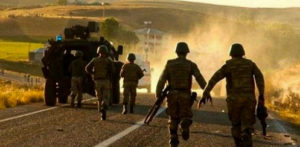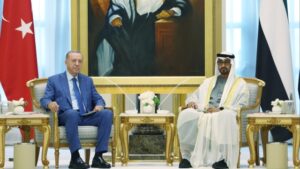The Kurdistan Communities Union (KCK) has announced the termination of the “period of inaction” that was initially declared following the February earthquakes and extended due to the dual elections in May.
The decision to end the “ceasefire” was attributed to what the KCK referred to as “attacks by the state,” which have “intensified” in recent months.
During the period that spanned over four months, the KCK also highlighted increasing severity of the “isolation” imposed on Abdullah Öcalan, the imprisoned leader of the outlawed Kurdistan Workers’ Party (PKK). These factors, according to the KCK, “necessitated the conclusion of the period of inaction.”
Among the incidents that contributed to the decision was the killing of Hüseyin Arasan in Sulaymaniyah in Iraq’s Kurdistan region. Media outlets close to the PKK alleged that Turkey’s National Intelligence Organization (MİT) was responsible for the killing of Arasan, who was a member of the Mezopotamya Workers Association.
In their statement, “the KCK emphasized their commitment to advocating for a democratic political solution to the Kurdish issue and the democratization of Turkey.”
The KCK also criticized the opposition for failing to adopt an approach that would contribute to the humanitarian, conscientious, and political process, and maintaining a nationalist and narrow-minded stance that did not differentiate itself from the ruling party.
Source: Bianet
Ask me anything
Explore related questions





